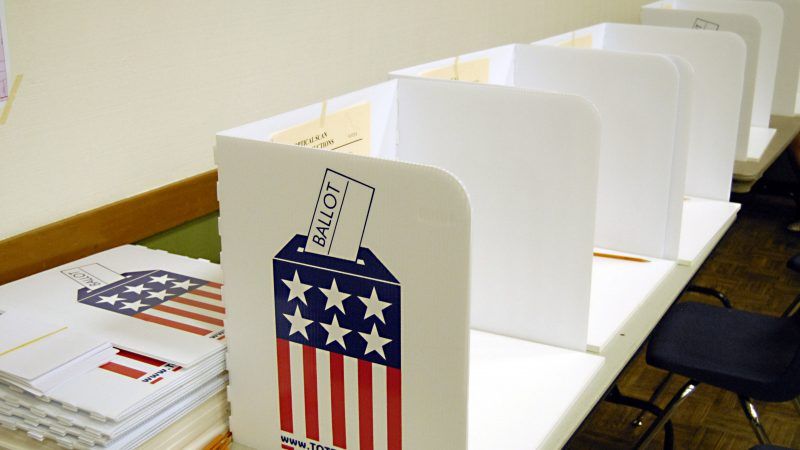Boise's New Stadium Referendum Requirement Should Be a Model for Other Cities
A proposition approved last week will require a majority of city voters to approve any future stadium project that uses more than $5 million in public money.

Voters in Boise, Idaho, voted overwhelmingly last week to require more votes before the city can spend public money on stadiums. It's an idea that other cities and states should copy.
The so-called "vote for a vote" proposition will require a majority of city voters to approve any future stadium project that uses more than $5 million in public money. More than 50,000 ballots were cast in the Election Day referendum, and more than 75 percent of voters supported the idea. Its passage may complicate the city council's plans to build a $50 million soccer and/or baseball stadium in the hopes of attracting a minor league franchise.
Boise voters also approved a similar measure that prohibits the city from spending more than $25 million on library construction projects—the city has proposed building an $85 million library—without voter approval.
In both cases, giving taxpayers a more direct say over expensive building projects makes sense. On his Field of Schemes blog, stadium critic Neil deMause favorably compares the new Boise referendum to a similar ballot initiative passed a decade ago in Seattle. The Seattle measure, known as "I-91," requires that city officials demonstrate stadium projects would generate a return on investment exceeding how much the city could earn by investing the same amount of public money in U.S. Treasury bonds. It has been one of the more effective local limitations on stadium boondoggles across the county, deMause argued in a 2017 piece for Deadspin.
Requiring a public vote on stadium projects is an even better check on bad deals—in part because it would force those deals to be made more transparently. Boise's new requirement would effectively prevent the kind of shenanigans that occurred in Cobb County, Georgia, in 2013, when county officials and Major League Baseball's Atlanta Braves negotiated a secret deal to bring the team to the city's northern suburbs. Taxpayers were put on the hook for $400 million in stadium construction costs, but there was almost no public discussion of the agreement before county officials voted to approve it. Braves' president John Schuerholz later admitted that the deal was done in private to avoid a public backlash.
The county commissioner who engineered the whole thing was voted out of office in 2016. That provides a bit of a satisfying ending, but obviously it would be better for taxpayers and voters to be able to stop bad stadium deals before they are made, rather than simply booting politicians who make them.
Requiring a referendum isn't an automatic death knell for stadiums. Major League Baseball's Texas Rangers are moving into a new $1 billion stadium in 2020, and the $500 million in public funding was approved by voters in Arlington, Texas, with a 2016 referendum.
It makes sense for cities to ensure that residents have a say in stadium subidies. The benefits of forcing additional transparency into a process where team owners and public officials have a strong incentive to mislead or hide details is itself reason enough to follow Boise's example.


Show Comments (17)